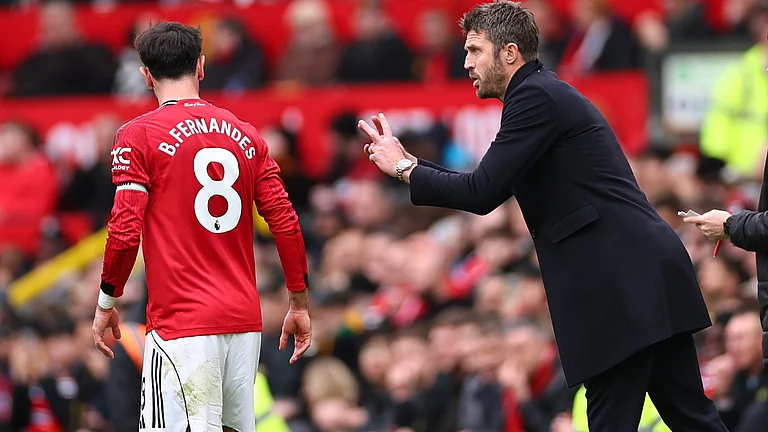He is many things to many people. A rabble-rouser and anarchist for some. For others, he is the voice of the marginalised and downtrodden. But no matter from which side of the political divide you look at Akhil Gogoi (in pic), the firebrand rights activist of Assam is not the one to stay out of the headlines. Earlier this month, Gogoi—elected to the assembly while still in jail—walked free after being incarcerated for over one-and-a-half years. What is more important is the court’s rather stinging remarks about the way the National Investigation Agency (NIA) handled the cases against Gogoi.
A special NIA court absolved Gogoi of charges of terrorism slapped under the contentious Unlawful Activities (Prevention) Act, besides other charges like sedition, in two cases in connection with the December 2019 anti-CAA agitation in the state. Gogoi was arrested on December 12 and was in jail since, seeing the agitation peter out, the Covid pandemic set in—infecting him, too—and the assembly elections go by, but leaving him with a new identity as MLA of Sibsagar, the seat of the 600-year-long rule of the Ahoms, to whom he traces his roots.
“It is a historic verdict,” Gogoi had said in his first remarks after being set free. “The court quashed all accusations of the NIA against me of being Maoist etc at the stage of framing of charges. It only proves the charges were fake.” Gogoi alleged the NIA had pressured him to join the BJP and RSS.
While acquitting him, the court of Justice Pranjal Das, which delivered both the judgments—on June 22 and July 1—did not appear at all amused with the way the NIA conducted its investigation. “This court is constrained to observe, in the interests of justice, that the court has found the conduct and approach of the investigating authority/prosecution in this case, to be discouraging, to say the least. The court has high expectations from a premier investigating agency like the NIA, entrusted with the profoundly important task of protecting our country and us, citizens from the menace of terrorism. The court hopes and expects that such high standards will be upheld, for sake of the country and this one will be just an exception,” it said.
Guwahati-based advocate Nekibur Zaman said “the NIA’s failure to provide prima facie evidence to substantiate its charges” proved the cases were false. “We keep hearing allegations of central agencies being used for vindictive purpose and after Gogoi’s acquittal people will tend to believe these,” Zaman added. Gogoi, in the meantime, has his future course of action ready and, expectedly, he has said he would continue to oppose implementation of CAA, besides taking up issues like land rights, an issue among others that had established him as a rebel.
Akhil Ranjan Dutta, professor of political science at Gauhati University, said Gogoi would now be able to build up the organisation of Raijor Dal, the party he formed ahead of the last assembly elections. “He has the experience and the capacity to do it,” Dutta said. “Besides, he is now in a stronger position to revive the movement against CAA after the coat of credibility that the court verdict has provided him.”
(This appeared in the print edition as "Akhil Gogoi: Back in Action Mode")
By Dipankar Roy in Guwahati


























